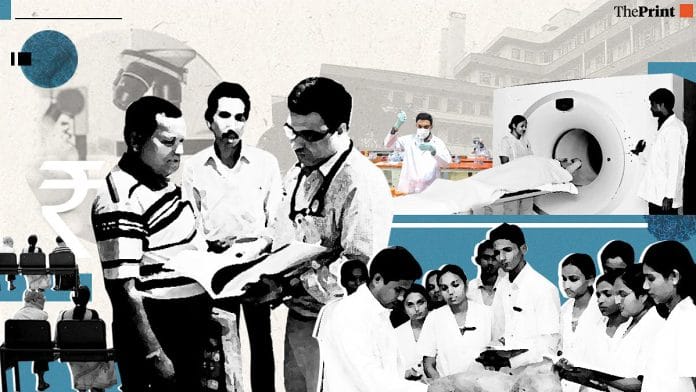The name “cancer” evokes extreme fear in the minds of people, not surprisingly so. High mortality rates, paucity of treatment options, high financial burdens, long-drawn therapies, the pain endured by patients, and a lack of understanding of the disease all contribute to significant health and social burden. In India, the incidence is estimated at nearly 15 lakh cases annually, making it the country with the third-highest number of cases after the US and China. Moreover, one in every nine individuals in India is likely to develop cancer in their lifetime, with lung and breast cancers being the most prevalent and causing maximum deaths.
Modern science is transforming our understanding and treatment of cancer worldwide. Deoxyribonucleic Acid (DNA), the genetic material inherited from our parents, is found in identical copies in all cells—more than a trillion of them. But this DNA is unique to each individual. Fragments of this DNA, called genes, encode for proteins, which are the workhorses of cells. During cell division and the DNA’s replication process, errors occur at times, which lead to accumulation of mutations in these cells. Moreover, the DNA itself gets modified by mechanisms of extra-genetic factors, typically called epigenetics. Understanding the sequence of DNA, along with mutation and epigenetic changes, is extremely critical to understanding the underlying causes of cancer.
Genomic information is important for managing cancer or deciding suitable chemotherapy based on the mutational profile of tumours. Cancer is typically caused by a rogue mutation in one or more cells, giving them a selective growth advantage and allowing rapid proliferation compared to other cells. This mutation could be influenced by genetic, epigenetic, or an external factor such as smoking. Once these rogue cells multiply, they can spread to other parts of the body, hindering various functions. Numerous studies have identified unique abnormalities that cause cancer, each with a distinct “fingerprint” with few common elements.
The analysis of genomes has yielded rich information into cancer’s causes. Considering the importance of using modern biological techniques, such as genome sequence analysis, modification of genomes, protein modifications, and other similar methods, the National Institute of Health (NIH) and the National Cancer Institute (NCI) in the US launched The Cancer Genome Atlas (TCGA) initiative 15 years ago. TCGA has since advanced our understanding of various cancer subtypes and their molecular or cellular bases. The Omics-work at TCGA has indeed transformed cancer care in the Western world. However, the cohort analysed is dominated by people who live in the US or western Europe.
Also read: Pill under Rs 100 to reduce cancer recurrence? Novel nutraceutical holds promise but it’s too early
India-specific data for cancer care
There are important differences among population subtypes in their susceptibility to various cancers, as shown by the genomic profiles of individuals from diverse ethnic backgrounds worldwide. Each population’s unique genetic makeup might have different underlying propensities for the causes of cancer. Moreover, varying immunological responses to rogue cells can affect cancer development, but these responses themselves might differ among different populations. Consequently, much of India’s cancer care has relied on data from Western countries, leading to an increasing realisation among caregivers that generating India-specific data is essential so that Indian patients can be better managed based on their genomic information.
Four years ago, a group of Indian clinicians, scientists, and philanthropic donors initiated the Indian Cancer Genome Atlas (ICGA), modelled after TCGA, as a not-for-profit company, to share and generate Indian genomic data.
Recently, the ICGA launched India’s first open-access cancer multi-omics data portal. This platform aims at transforming cancer research and treatment for Indian populations. The portal offers data, including DNA, RNA, protein profiles, and clinical outcomes of 50 breast cancer patients, with plans to expand to over 500 patients in the coming year. This data is freely accessible to the global research community under India’s PRIDE guidelines, which promote ethical sharing and collaboration in cancer research.
The ICGA team expects that philanthropic donors will support this important initiative to reduce cancer burden in India. Simultaneously, the government announced the Cancer Moonshot project to fight cancer. With both governmental and non-governmental support, definite steps are being taken to understand and manage cancer in the Indian population. Rapid progress in cancer care in India is expected based on the data generated for the Indian population.
Sunil Badve is a professor at Emory University School of Medicine, US. Shekhar C Mande is the retired Director General of CSIR and currently a professor at the Savitribai Phule Pune University. He tweets @shekhar_mande. Views are personal.
(Edited by Prashant)
Also read: Indian women need cancer screening, not just mangalsutras and gas cylinders






